First there were 24 teams and now, after a wild two-week group stage, just 16 teams remain as the Euro 2020 knockout rounds begin this Saturday. Will France add Euro glory to their World Cup from 2018, or will Portugal become just the second team ever to defend a Euro title after Spain did it in 2008 and 2012?
England and Germany have looked far from their best so far: which of them will be left standing after they meet at Wembley next Tuesday? And how about Spain or Italy, both flying slightly under the radar given low expectations, but with more than enough talent to make a deep run?
Let ESPN FC get you ready for the round of 16 with a comprehensive look at every fixture, all of them streaming LIVE on ESPN and ESPN+ over the next four days, and our experts pick the eight teams they think will advance to the quarterfinals.
FORM GUIDE: Wales got through Group A after drawing 1-1 with Switzerland, and then producing a remarkable performance to beat Turkey 2-0 thanks to goals from Aaron Ramsey and Connor Roberts. They finished with a spirited 1-0 defeat to Italy in Rome and ended up second in Group A.
Denmark’s campaign began with the traumatic events in Copenhagen as Christian Eriksen collapsed against Finland. Despite the midfielder suffering a cardiac arrest, Denmark restarted the match later that night and lost 1-0. They rallied against Belgium in the next match but lost out 2-1. They then knew they had to beat Russia in the final match, and they hammered them 4-1 to go through in third place in Group B.
KEY PLAYERS: It’s impossible to look past Gareth Bale for Wales. He’s been at the heartbeat of this side through their Euro 2020 journey but they are more than a one-man side. Aaron Ramsey is showing signs of being back to his best, while Kieffer Moore is a real handful up front. Danny Ward has also been magnificent in goal, despite having played more matches for Wales in the Euros than he did for Leicester City this season. Daniel James will also cause Denmark‘s right side all manner of difficulty.
HOW THE TEAMS STACK UP: Wales will try to operate on the counterattack, looking to soak up the pressure and then hit them on the flanks through James and Bale, and then trying to find Moore to cause some havoc in the penalty area. They’re happy to operate a low block, but are most effective when they’re pressing higher up the field, looking to pounce on any opportunities. Much of their attacking play goes through Bale, and he’s happy to play both on the wings and through the middle. Denmark will be mindful of Wales’ first goal against Turkey: Bale dropped deep like a quarterback and then floated a beautiful pass into the path of Ramsey, who slotted it home. Also expect plenty of energy from the bench.
Denmark are a neat passing team and will play a 3-4-3, looking to get balls into to Braithwaite and Poulsen. Damsgaard and the tricky Joakim Maehle are their other main threats, but they are also happy to have a go from anywhere: they had the most shots in the group stages out of any team (61). Beware the hammer-shot of defender Christensen after he smashed one in from distance against Russia, while Damsgaard’s ability to come in off the left and play through the middle of the park is also a threat.
Hojbjerg and Delaney are canny operators in midfield and will try to lock up that middle third; Ramsey and Joe Morrell will need to unpick that.
This match will be played back at Eriksen’s old Ajax home in Amsterdam, so expect the bulk of the support to be in Denmark’s favour. We think they’ll continue their Euro 2020 journey with a win against Rob Page’s spirited Wales. — Tom Hamilton
FORM GUIDE: Italy sailed through their group with three wins and was able to rest eight players for the third and final match against Wales. Austria finished second, performing as expected in the first two games — beating up on North Macedonia and losing to the Dutch — before winning the de facto playoff for second against Ukraine.
KEY PLAYERS: Jorginho isn’t the only Italian midfielder who can pass, but he’s the “point guard” for this team, setting the tempo and controlling the play. Fellow midfielders Manuel Locatelli and Nicolo Barella are equally important, setting the pressing triggers, supporting the attack and sharing the creative load.
David Alaba is Austria’s biggest name and most gifted player. He may be lining up at center-back for Real Madrid next season, but he’s played three different positions (none of them in central defence) thus far at Euro 2020. Martin Hinteregger is a defensive stalwart, while Marcel Sabitzer and Christoph Baumgartner are dynamic midfielders who can get in the box and shoot.
HOW THEY STACK UP: This isn’t like the Italy sides of old. Roberto Mancini’s teams play an up-tempo, press-and-pass game that sees them dominate possession and commit plenty of men forward. Austria like to build play from the back as well — certainly more than any of the teams Italy faced in the group stage — and it’ll be interesting to see how they cope with the Italian press. Up front, Marko Arnautovic is a physical, edgy striker (Sasa Kalajdzic off the bench is even bigger), which in some ways should suit Italy’s veteran central defenders.
Italy will need to deal with the threat of Sabitzer and Baumgartner running into the box, whereas Austria’s main concern defensively will come on the flanks. Both wide forwards Domenico Berardi and Lorenzo Insigne (not to mention Federico Chiesa, if he starts) love to take on fullbacks and they should get plenty of support, particularly down the left, from Leonardo Spinazzola. Ciro Immobile is a very busy forward who’s useful even when he’s not scoring (which he’s done freely at club level, less so with the national team) and he’ll be looking to stretch the expert (but not overly mobile) defensive partnership of Hinteregger and Aleksander Dragovic.
Italy are coming off a 30 game unbeaten streak and haven’t conceded in 10 matches, so despite their front-foot approach, they’ve coped well defensively. It’s hard to see that run coming to an end against Austria.— Gab Marcotti
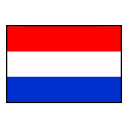
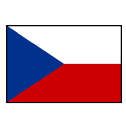
June 27: Noon ET/6 p.m. CET, ESPN/ESPN+
FORM GUIDE: Playing in their first major tournament since the 2014 World Cup, the Netherlands coasted through Group C with a 100% record and eight goals scored in three games. The Dutch played all those games in Amsterdam, however, so they’ll be playing away from home for the first time in the tournament when they face the Czechs in Budapest. Despite finishing third in Group D, the Czech Republic had secured qualification before losing 1-0 to England in their final group game, with a win against Scotland and draw against Croatia highlighting their ability to get results in the competition.
KEY PLAYERS: Georginio Wijnaldum is the man who makes the Dutch tick. While much of the focus is on Memphis Depay, who has just completed a move from Lyon to Barcelona, former Liverpool midfielder Wijnaldum has been the star man to date by excelling in a more advanced role than he played under Jurgen Klopp at Anfield. He has hit three goals in three games so far and will be crucial if the Netherlands are to progress to the latter stages.
Patrik Schick has been the outstanding performer for the Czechs so far, with the Bayer Leverkusen forward also netting three goals in three games. His long-distance strike in the 2-0 win against Scotland is the leading contender for goal of the tournament and, while defendersTomas Kalas and Vladimir Coufal have been impressive at the back, Schick is the man who is carrying Czech hopes on his shoulders because he is most likely to score the goals to get them beyond the Dutch.
HOW THEY STACK UP: The Czechs are a well-drilled and disciplined outfit, but they also have players capable of hurting the Dutch including Schick, Tomas Soucek and the 18-year-old Adam Hlozek. They will be happy to sit deep and soak up pressure before attempting to strike on the counterattack and they are likely to be the biggest test faced by the Netherlands so far.
Having already faced England and Croatia, two of the strongest teams in the tournament, the Czechs may be more match ready for this one than the Dutch, who emerged from a weak group including Ukraine, Austria and North Macedonia. And although they beat Ukraine in a five-goal thriller in their opening game, the Netherlands’ defensive shortcomings were exposed in that match and could be punished by the Czechs.
But while the Czech Republic should not be underestimated, it is clear that momentum is with the Dutch following their winning start to the tournament. The absence of the injured Virgil van Dijk has not been an issue as yet with Daley Blind, Matthijs de Ligt and Stefan de Vrij forming a three-man defensive partnership.
The Dutch do lack a cutting edge, though, and that may prove their downfall, if not against the Czechs then against a more formidable opponent. Denzel Dumfries has brought pace and goals out wide, but centre-forward Wout Weghorst is a workhorse rather than a thoroughbred in the mould of previous Dutch strikers such as Marco van Basten, Ruud van Nistelrooy and Robin van Persie.
Both teams have their limitations, yet both are capable of producing a big performance to get through this tie. It will be tight and an example that group results count for nothing in the knockout stages. — Mark Ogden
1:15
Steve Nicol is adamant that Cristiano Ronaldo and Portugal shouldn’t be discounted because of their moderate performances.
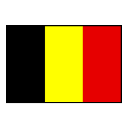

June 27: 3 p.m. ET/9 p.m. CET, ABC/ESPN+
FORM GUIDE: Except for 45 minutes against Denmark, Belgium were comfortable in Group B, finishing top with a perfect record and scoring seven goals. Portugal‘s path out of Group F was more complicated. They looked good in spells and awful in others, conceded goals but scored them too and eventually finished third to sneak through.
KEY PLAYERS: Portugal have got enough attacking talent in Cristiano Ronaldo, Diogo Jota and Bruno Fernandes to cause Belgium problems, but they gave up too many chances in the group stage and they will need Ruben Dias in top form if they are going to stop Eden Hazard, Kevin De Bruyne and Romelu Lukaku in Seville on Sunday. He’s had a fantastic first season at Manchester City but will need to be at his best against Lukaku, who has looked sharp.
Belgium’s key man is De Bruyne. His link-up play with Lukaku was devastating in their last group game against Finland, and if he can find the same space against Portugal, he will create enough chances for Roberto Martinez’s side to win the game.
HOW THEY STACK UP: Belgium and Portugal prefer to attack than defend so there should be goals. Both teams scored seven in the group stages with at least two in each game. Belgium will look to get De Bruyne on the ball in little pockets around the penalty area as much as possible so he can flick passes into Lukaku, something that worked well against Finland. To stop it, Portugal will have to cramp De Bruyne for space and it may come down to Renato Sanches to be the man to try to smother the Manchester City midfielder.
If fitness is an issue after such a long season, Belgium should have the edge. Martinez was able to make eight changes for the last group game with Youri Tielemans and Leander Dendoncker given the night off while Portugal needed a full team to earn a 2-2 draw with France to make sure they didn’t go home early. At one stage, trailing France and Hungary beating Germany, they were going out. Belgium are the No. 1 ranked team in the world and have shown enough in the group stage to be considered favourites against Portugal, who were dismantled by Germany, but with Ronaldo in form with five goals already, you never know. — Rob Dawson
0:48
Luis Garcia discusses how Spain’s 5-0 thrashing of Slovakia will lift the squad ahead of the knockout stages.
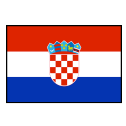
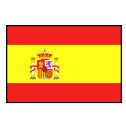
June 28: Noon ET/6 p.m. CET, ESPN/ESPN+
FORM GUIDE: Spain started slowly with two draws but punished a very poor Slovakia performance to win 5-0 and ensure they finished second in Group E behind Sweden. Croatia also needed a big win against Scotland in their last group game to finish second in Group D after losing to England and being held by Czech Republic.
KEY PLAYERS: Spain were struggling for goals until they came up against a Slovakia side seemingly determined to concede as many as possible. Despite finding the net against Poland, Alvaro Morata has looked short of confidence and he will need to be more clinical if Spain are going to make it through to the later rounds. For Croatia, Luka Modric reminded everyone how good he is during the win over Scotland. Even at 35 years old, he can keep a midfield ticking over with his movement and ability on the ball. His goal against Scotland — bent into the top corner from the edge of the penalty area — wasn’t bad either.
HOW THEY STACK UP: Spain will go into the game as favourites because they’re, well, Spain. But Croatia won’t have seen a lot in their group-stage performances to scare them. Croatia have won two out of the past three meetings, one at the last Euros and again in the Nations League in November 2018.
Spain will need the experience of Sergio Busquets to help win the midfield battle against Modric and the pair should know each other well after their many clashes playing for Barcelona and Real Madrid. It’s likely Croatia will have to withstand a lot of pressure but if they can keep Spain playing in front of them rather than getting in behind, they will be hard to break down. It may end up being a game of few clear-cut chances and could come down to which team is most clinical on the day. — Rob Dawson


June 28: 3 p.m ET/9 p.m. CET, ESPN/ESPN+
FORM GUIDE: France topped the group of death with an impressive win against Germany (1-0), a laborious performance against Hungary (1-1) and two big mistakes resulting in two penalties for a draw against Portugal despite a commanding second half (2-2). Switzerland only qualified as one of the best third-place in the group stages. They could only draw with Wales (1-1), before being given a lesson by Italy (3-0), only to react well against Turkey (3-1) with a convincing victory.
KEY PLAYERS: Paul Pogba has been the most consistent French player in the group stages. He was superb against Germany and Portugal with the quality of his passing and his work rate. He will be one of the keys again in Monday’s game. If the Swiss can’t cope with him, he’ll be able to dictate the pace of the game and will be able to find his front three. Kylian Mbappe, Karim Benzema and Antoine Griezmann will have a big impact on this tie too. Mbappe is the only one yet to score in this competition so far among the three, something he’ll want to change in the round of 16.
For Switzerland, the leaders have been disappointed so far. Xherdan Shaqiri scored twice against Turkey, but was poor in their first two games. Simply put, Switzerland cannot win if the Liverpool forward is not leading the way. Granit Xhaka also needs to have a bigger impact in midfield. His battle with Pogba will be interesting.
HOW THEY STACK UP: These two teams know each other so well after meeting at Euro 2016 as well as the 2006 and 2014 World Cups. However, it will be the first time Switzerland play them with a three-man defense and a 3-4-1-2 formation. Could this change the dynamics?
That said, Les Bleus are big favourites regardless of how the Swiss play. We saw France deal really well with Germany’s 3-4-3 formation in the group stages, meaning that the key to this game will be Paul Pogba and N’Golo Kante: they’ve never lost when starting together and have yet to find an opponent capable of causing them problems. Switzerland struggle without the ball and could really struggle to prevent the French from developing their attacks. If Didier Deschamps’ side gets control of the ball and can set the tempo of the game, there will be no way back for the Swiss even with the extra rest since the end of the group stage. And even if Vladimir Petkovic’s men have the ball, they will have to be really creative and good in the last 30 yards to put the French defence under pressure.
Psychologically, France’s dominance vs. Switzerland in the past 20 years could have an impact too. The last time they beat their neighbours was in 1992 — seven encounters ago! — Julien Laurens
0:50
Gab Marcotti feels Gareth Southgate may lose his job if England are knocked out of Euro 2020 by Germany.

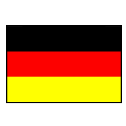
June 29: Noon ET/6 p.m CET, ESPN/ESPN+
FORM GUIDE: England were one of only two teams to keep three clean sheets during the group stage (along with Italy), beating Croatia and the Czech Republic either side of drawing against Scotland. Germany were six minutes from going out of the tournament but snatched a late equaliser against Hungary to finish second in a tough group during which they lost to France but beat Portugal 4-2.
KEY PLAYERS: Harry Kane may not have scored yet at these finals but he remains the England player most feared by other countries. Manager Gareth Southgate has rotated the supporting cast behind him to generate the movement in advanced areas that can give him the space to thrive, but it looks like Raheem Sterling and one other from Jack Grealish, Bukayo Saka, Marcus Rashford or Jadon Sancho will form England’s forward line. None of them can finish like Kane, however, who won the Golden Boot at the last World Cup, and if England are to continue creating only a limited number of chances, they’ll need the Tottenham Hotspur striker in top form to take what comes his way.
There is consternation in Germany over Joachim Low’s use of Joshua Kimmich given he has established himself as an excellent defensive midfielder only to be often used as a right wing-back in this tournament. Wherever he plays, however, the 26-year-old can still use his excellent range of passing to good effect. Kimmich is precisely the kind of midfield metronome England lack and any rhythm the Germans find at Wembley will likely come through him.
HOW THEY STACK UP: Southgate adopted a cautious, disciplined approach during the group phase, content to take what England had as they entered the final phase of the game and see that result out. That is due to a combination of factors: fatigue in the squad, England’s historically suspect game-management in tournament football and concerns over the robustness of his defence. England almost always struggle to retain possession in Euros and World Cups. Arguably his biggest decision is how much risk he is willing to inject into England’s setup. There is pressure on him to do so from fans excited by the attacking talent contained within the squad and there are big decisions ahead, not least whether he switches to a back three to match up with Germany as he has often done against top sides.
There is a sense of structure to England that, surprisingly, Germany have lacked so far at these finals. Their chaotic qualification points to an unusually porous back line and a lack of cohesion in attack, relying on individual brilliance to a significant extent even in their win against Portugal. Doubts remain over the 3-4-2-1 shape with Serge Gnabry as a false nine, but the Bayern Munich winger performed well there prior to Euro 2020 and the individual quality Germany possess make it eminently possible they could begin peaking at the right time, as they have so often done in past tournaments.
Southgate has rotated his full-backs and whoever is asked to stifle Kimmich, assuming he plays on the right again, will have a key role to play. The presence of two No. 10s could tempt England into playing two defensive-minded midfielders again, but with that comes pressure to use the ball more inventively than Declan Rice and Kalvin Phillips have largely done to date. There will also be the majority of 45,000 fans willing them on.— James Olley
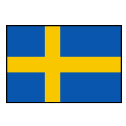
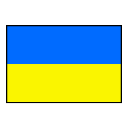
June 29: 3 p.m. ET/9 p.m. CET, ESPN/ESPN+
FORM GUIDE: Sweden started with a hard-fought 0-0 draw with Spain in their opener and then edged past Slovakia 1-0 thanks to Emil Forsberg‘s 77th-minute penalty. That was their first goal in 365 minutes of Euros action, dating back to their opener in Euro 2016, so they have found goals hard to come by. They finished with a 3-2 win over Poland thanks to a double from Forsberg and Viktor Claesson‘s late winner to top Group E.
Ukraine managed to get through as one of the best third-placed teams, despite losing two of their three Group C matches. In their opener against the Dutch, they came back from two goals down to level the match, only to lose 3-2 thanks to Denzel Dumfries‘ 85th-minute winner. Next up they managed to get past North Macedonia 2-1 thanks to strikes from Andriy Yarmolenko and Roman Yaremchuk. But they finished the group with a disappointing 1-0 defeat against Austria in Bucharest.
KEY PLAYERS: Sweden’s 21-year-old striker Alexander Isak is one of the players of the tournament so far. While he hasn’t yet scored, he’s been outstanding for Sweden and is usually not far removed from whatever they’re doing well. Forsberg will get plenty of headlines for his three goals in as many matches, and he has been outstanding, but Isak is a wonderful player, who has delightfully tricky feet and a tendency to drop deep and fashion his own chances. With several of Europe’s top teams hunting a new striker, you can imagine plenty will be casting envious eyes at Real Sociedad‘s Isak. Also beware Dejan Kulusevski, who’s waiting to be unleashed. The Juventus maestro has played just 35 minutes in the tournament so far, having missed their opener due to testing positive for COVID-19. But in that 35-minute cameo against Poland, he teed up both Forsberg’s second and Claesson’s winner.
For Ukraine, they’ve been reliant on West Ham United‘s Yarmolenko. He’s scored twice for Andriy Shevchenko’s side. His first was a delightful arching, curled effort against the Dutch while his other against North Macedonia was more straightforward as he tapped in at the far post to help his side to that key win. Oleksandr Zinchenko offers a threat down the left, while keep an eye on Shakhtar Donetsk‘s centre-back Mykola Matviyenko, who’s been linked with Arsenal. They’re likely to target set pieces but expect that front three of Yarmolenko, Yaremchuk and Ruslan Malinovskyi to knock the ball about. Teams won’t have it easy to dwell on possession against Ukraine, as they have three players (Matviyenko, Oleksandr Karavaev and Illia Zabarnyi) in the top five for ball recoveries in the group stages.
HOW THEY STACK UP: Sweden can play a variety of ways, but their style will likely be a hybrid of how they tackled their second and third group matches, rather than their opener against Spain where they had just 15% possession. They’ll likely employ a 4-4-2 and look to funnel the ball through the brilliant Forsberg, who’ll play off the left or through the middle. Isak and Robin Quaison offer a threat up front, but this Sweden team is built on belligerence, durability and work ethic. They are a tricky team to break down — with Victor Lindelof, Marcus Danielson and Robin Olsen their defensive rocks — but have that dab of class up front to grab the necessary goals.
Ukraine will play a mix of 3-4-1-2 and 4-3-3 and know they have it in their locker to frustrate big teams, having drawn with France earlier this year. They’ll be underdogs for this match, but it’ll be fascinating to see where Shevchenko plays Zinchenko. The Manchester City man has been used on the left wing by Ukraine, but looked more effective when operating slightly deeper, giving him license to overlap the winger and get in behind the back. Their options up front are dangerous with Yarmolenko dovetailing neatly with Yaremchuk and Malinovsky, so there are zero concerns there, but they must find a way to improve their transitional play and service to the front men. Their defence has given up chances — conceding five goals to date — but still have class in Matviyenko. Also expect Viktor Tsygankov to make an impact from the bench, if he fails to make the starting XI.
With the outstanding Isak one of the players of the tournament so far, expect Sweden to get through to the quarterfinals, but this will be a match where there will be plenty of shadow boxing before we get a knockout blow. — Tom Hamilton
Predictions
Who makes it through to the final eight? Our experts make their picks.
Hamilton: Belgium vs. Italy, France vs. Spain, Sweden vs. England, Netherlands vs. Denmark
Ogden: Belgium vs. Italy; France vs. Croatia; England vs. Sweden; Wales vs. Czech Republic
Olley: Belgium vs. Italy, France vs. Croatia, Germany vs. Ukraine, Netherlands vs. Denmark
Dawson: Belgium vs. Italy, France vs. Spain, England vs. Sweden, Wales vs. Netherlands
Marcotti: Belgium vs. Italy, France vs. Spain, Germany vs. Sweden, Netherlands vs. Denmark
Laurens: Belgium vs. Italy, France vs. Spain, Germany vs. Sweden, Wales vs. Netherlands
